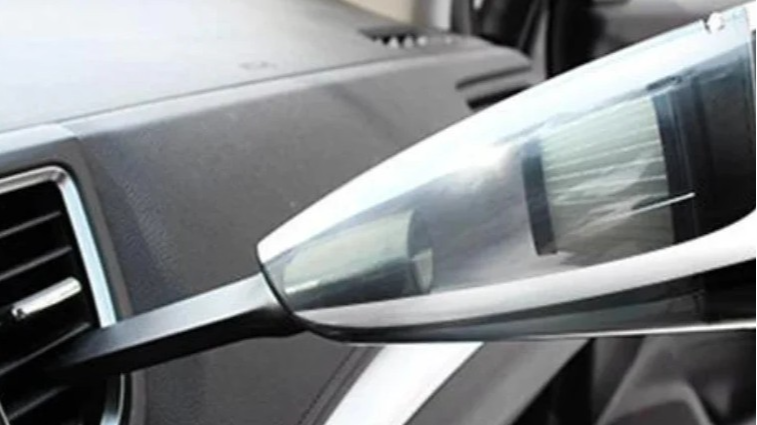Key Takeaways
- Car interiors can harbour more bacteria than regularly cleaned public toilets – Studies indicate that certain areas inside cars, such as the trunk, steering wheel, and other frequently touched surfaces, can be home to more bacteria than a regularly cleaned public toilet, with harmful microorganisms like Staph Aureus thriving on frequently touched surfaces.
- Mental well-being improves with cleanliness – Studies show that clean, organised car interiors reduce driver stress and promote a sense of calm during commutes.
- Simple maintenance prevents costly repairs – Regular cleaning removes corrosive salt and grime that can damage paintwork, particularly important during UK winters.
- Professional solutions make car care effortless – Modern cleaning equipment and services eliminate the hassle of maintaining vehicle hygiene.
For many UK drivers, the car serves as a second home – a space where families eat meals, children play, and commuters spend hours navigating busy roads. Yet this intimate environment often receives far less attention than the kitchen table when it comes to cleanliness and hygiene.
Studies Show Car Interiors Are Filthier Than You Think
Recent research has revealed a startling reality about vehicle hygiene that should concern every UK driver. Studies indicate that certain areas inside cars, such as the trunk, steering wheel, and other frequently touched surfaces, can harbour bacterial counts that would make even the most hardened germaphobe reconsider their daily commute.
The boot area is a particularly problematic zone, often serving as a breeding ground for harmful microorganisms. Meanwhile, the gearstick, dashboard, driver’s seat, and backseat all register bacterial levels that far exceed what health experts consider acceptable in public facilities. This contamination isn’t just unsightly; it represents a genuine health risk for drivers and passengers alike.
Among the most concerning discoveries are the presence of harmful bacteria such as Pseudomonas and Staph Aureus within car interiors. These pathogens can cause serious infections and health complications, particularly for individuals with compromised immune systems or existing respiratory conditions. Professional-grade cleaning equipment can effectively tackle these hidden health hazards, ensuring vehicles remain safe environments for daily use.
Hidden Health Risks Lurking in Your Vehicle
Air Pollution Levels Higher Inside Cars Than Outside
Contrary to what many drivers believe, air pollution levels can, at times, be higher inside cars than outside. This poses even worse health risks to drivers and passengers, even in heavily polluted urban areas like London. Research indicates that in-vehicle air pollution can reach levels substantially higher than external measurements, with harmful gases managing to penetrate car air filtration systems.
Research by Airlabs, highlighted by the RAC, claims that in-cabin pollution exposure for professional drivers is equivalent to passively smoking 980 cigarettes annually. This alarming statistic underscores the critical importance of maintaining proper air circulation and regularly replacing cabin air filters to protect occupant health.
Common Allergens Triggering Asthma and Respiratory Issues
Vehicle interiors can quickly become collection points for numerous allergens that can trigger severe reactions in sensitive individuals. Pollen, dust mites, pet dander, and mould spores accumulate within carpets, upholstery, and ventilation systems, creating an environment that can provoke asthma attacks, allergic rhinitis, and other respiratory complications.
For families with children who suffer from allergies or asthma, the car interior is a particularly challenging environment. Food crumbs and spilt beverages create ideal conditions for dust mites and mould growth, whilst damp carpets following wet weather provide additional breeding grounds for harmful microorganisms.
Harmful Bacteria Thriving on Steering Wheels and Door Handles
The surfaces drivers and passengers touch most frequently – steering wheels, door handles, gear sticks, and handbrakes – harbour the highest concentrations of dangerous bacteria. These contact points get contaminated through regular use and rarely receive the thorough disinfection required to eliminate harmful pathogens.
A study by Queen Mary University in London found that steering wheels can contain significantly more bacteria than toilet seats, yet most drivers clean these surfaces far less frequently than they would clean bathroom fixtures in their homes. This oversight creates ongoing health risks for vehicle occupants, particularly during cold and flu seasons when bacterial transmission rates increase significantly.
Safety Hazards of Driving a Dirty Car
Highway Code Violations From Poor Visibility
UK traffic regulations explicitly require drivers to maintain clear visibility through all windows and mirrors, making vehicle cleanliness a legal requirement rather than merely a cosmetic preference. Driving with dirty registration plates or obstructed windshields violates specific regulations within the Highway Code and can result in fines up to £1000 and penalty points, depending on the severity and specific violation.
Beyond legal compliance, poor visibility created by dirty windows, mirrors, and lights poses genuine safety risks on UK roads. Reduced visibility increases accident likelihood, particularly during adverse weather conditions common throughout the British climate. Regular cleaning ensures optimal visibility and helps prevent potentially fatal collisions.
Driver Distraction From Interior Clutter
Cluttered, dirty car interiors can create significant driver distraction that impairs concentration and reaction times. Loose items rolling around the vehicle, accumulated rubbish, and general disorder contribute to cognitive overload that reduces driving performance and increases accident risk.
Research demonstrates that organised, clean environments promote mental clarity and focus, whilst chaotic surroundings generate stress responses that interfere with complex tasks like driving. Maintaining a tidy vehicle interior directly contributes to safer driving practices and better decision-making behind the wheel.
Mental Health Benefits of a Clean Vehicle
The psychological impact of vehicle cleanliness goes way beyond mere aesthetics, with studies suggesting that clean and organised car interiors can significantly reduce stress levels and promote feelings of calm during commutes. For UK drivers facing increasingly congested roads and lengthy journey times, the mental sanctuary provided by a pristine vehicle interior offers valuable psychological benefits.
Clean environments trigger positive emotional responses that help counteract the stress associated with modern driving conditions. When vehicles serve as temporary refuges from daily pressures, their cleanliness can be crucial for mental wellbeing. This is particularly relevant for professional drivers and commuters who spend substantial portions of their day within vehicle confines.
The sense of control and accomplishment derived from maintaining a clean vehicle also contributes to improved self-esteem and reduced anxiety levels. Regular cleaning routines provide structure and purpose – whilst the results offer tangible evidence of personal care and attention to detail.
Essential Cleaning Steps for UK Drivers
1. Regular Interior Vacuuming and Disinfection
Effective vehicle maintenance begins with consistent interior vacuuming that targets all surfaces where dirt, dust, and debris accumulate. Pay particular attention to seat crevices, floor mats, and under-seat areas where food particles and organic matter often hide. Weekly vacuuming prevents the buildup of allergens and provides the foundation for proper vehicle hygiene.
Following vacuuming, disinfect all frequently touched surfaces using appropriate cleaning products. Steering wheels, gear sticks, door handles, and control buttons require regular sanitisation to eliminate bacterial contamination. Use microfibre cloths and antibacterial solutions to ensure thorough cleaning without damaging delicate surfaces.
2. Professional Deep Cleaning Services
While regular maintenance is vital, professional deep cleaning services provide the thorough treatment required to address embedded dirt and persistent odours. Professional technicians possess specialised equipment and expertise to tackle challenging cleaning tasks that exceed typical DIY capabilities.
These services typically include steam cleaning for upholstery, thorough sanitisation of all interior surfaces, and treatment of ventilation systems that amateur cleaning cannot adequately address. The investment in professional cleaning pays dividends through improved air quality, better vehicle appearance, and extended interior component lifespan.
3. Air Filter Maintenance Every 12,000-15,000 Miles
Cabin air filters should be replaced every 12,000-15,000 miles or annually, but this can vary depending on driving conditions and manufacturer recommendations. These filters trap airborne particles, pollen, and pollutants before they enter the passenger compartment, but their effectiveness diminishes significantly when clogged with accumulated debris.
Regular filter replacement ensures optimal air quality and prevents the circulation of contaminated air throughout the vehicle interior. UK driving conditions, particularly in urban environments, accelerate filter contamination and may require more frequent replacement than manufacturer recommendations suggest.
Car Maintenance Can Be Effortless for Health-Conscious Drivers
Modern technology has turned vehicle maintenance from a time-consuming chore into a manageable aspect of regular car ownership. Advanced cleaning solutions and professional services now make it possible to maintain pristine vehicle conditions without significant time investment or physical effort.
The key lies in establishing consistent routines that prevent major cleaning challenges from developing. Simple daily habits, such as removing rubbish and wiping down surfaces, combined with weekly vacuuming and monthly professional attention, ensure vehicles remain healthy environments for all occupants.
For busy UK drivers, the convenience of mobile cleaning services and advanced cleaning equipment eliminates traditional barriers to proper vehicle maintenance. These solutions deliver professional results whilst accommodating demanding schedules and varying weather conditions that complicate outdoor cleaning activities.
Look around for that make vehicle maintenance effortless for health-conscious drivers.


Comments are closed.